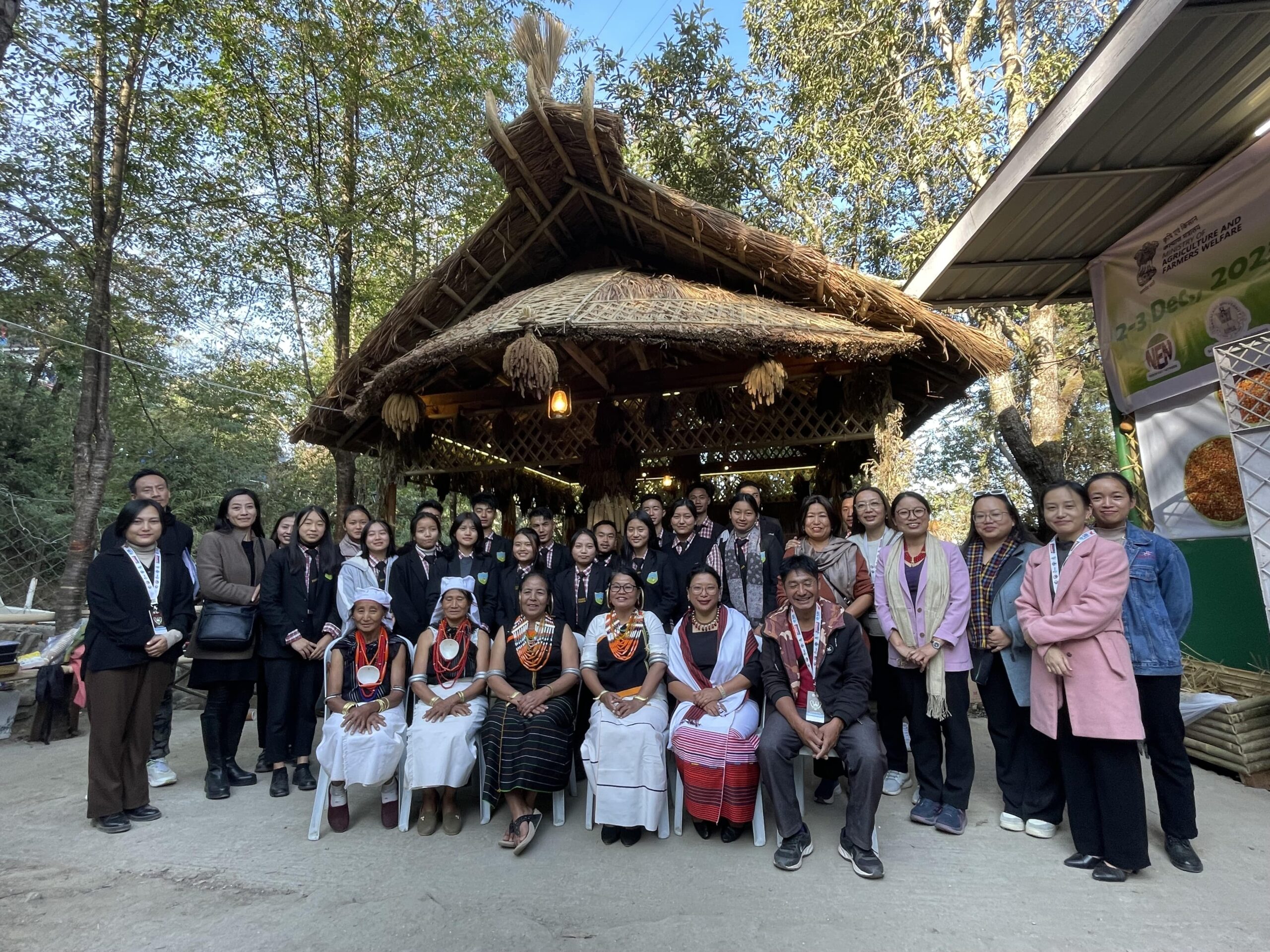2-3 December: In a momentous celebration of the Millets Festival held at Kisama Heritage Village, North East Network (NEN) emerged as a pivotal part advocating for millet-based bio-diverse farming systems. NEN joined in these celebrations as a technical partner to the Department of Agriculture. This event also saw the presence of Hon’ble Chief Minister of Nagaland, Neiphiu Rio; Advisor, Agriculture Shri Mhathung Yanthan; Commissioner and Secretary, Agriculture Shri Sushil Kumar Patel, IAS; Director of Agriculture Shri Ben Yanthan, and participants from other allied departments.
In this inaugural programme, Wekoweu Tsuhah, State Coordinator NEN, presented the Voices from the Fields. She took this opportunity to emphasise how the efforts and contributions of Nagaland’s resilient millet farmers mark the true essence of the festival. Further, her speech highlighted how NEN has been working on issues of agrobiodiversity and natural resource management, with women as knowledge holders and key actors within their communities.
With her years-long engagement with millet farmers from the region, Wekoweu learned a lot about agro-ecological farming systems and the support it requires, to achieve an inclusive, equitable, just and sustainable food system. It was this experience that helped her articulate six essential points that the government should focus on while promoting millets in Nagaland. Firstly, she stated how it is important to value traditional and farmer seed varieties, and community knowledge associated with it. She also stated the need to incentivise the millet farmers to sustain the diversity of millet seeds and the biodiverse farming system. She emphasised how millets are climate resilient and with the given water-stressed situation and rising temperature, it’s importance is more than ever. Through her speech, Wekoweu also urged the Government to include millets in the PDS, ICDS and MDM programmes, to make millet food accessible for the most marginalised due to the multiple health benefits associated with it. Further, she emphasised on the need to secure and enhance the livelihoods of small and marginalised farmers. Safeguarding common lands and providing support for collective farming initiatives is another important aspect she addressed through her speech. The importance of supporting women-led initiatives, such as setting up and strengthening community seed banks, setting up affordable processing units and other livelihood enterprises, was also highlighted.
In the festival, NEN showcased their work on Millets Based Biodiverse farming systems through seed collections, publications and photographs. This stall also accommodated the sale of the farmer’s produce: millets, grains and pulses. Another highlight of the event was the Knowledge Sharing on Millets: an intergenerational conversation with custodians of community knowledge. Discussions about millet diversity, millets in a biodiverse context, social-cultural and spiritual significance of millets, collective farming and gender equity were carried out in session facilitated by Seno Tsuhah with women farmers – Whulu and Mhathsulu from New Phor Village; Adile Wezah and Lhikoweu from Chizami village. NEN’s partners – SEWA Shamator and SEWA Kohima participated in sale of millet drinks and millet snacks, while highlighting NEN’s contributions in developing millet cuisines. Notably, the Millet Sisters from Meluri with whom NEN works, received Good Award for their exceptional contribution to millet farming as a women’s collective. Millet sisters and members of the Community Seed Bank Management Committee from Chizami attended the day-long programme on 2nd Dec and made visits to the Jakhama Community Seed Bank.
In a nutshell, NEN’s participation in this Millet Festival was a call to different stakeholders to join the movement in building an inclusive, equitable, just and sustainable food system in Nagaland.
- Knowledge Sharing on Millets
- Presenting NEN’s work on millets-based biodiverse farming systems
- Award for Millet Sisters from Meluri









